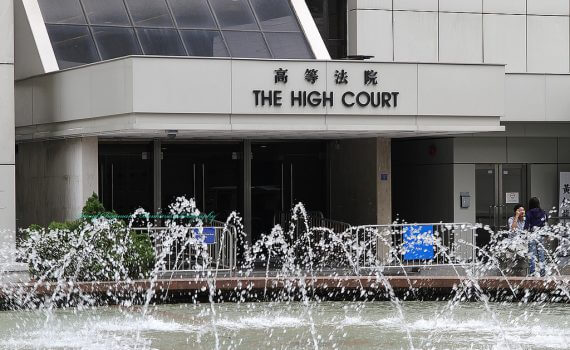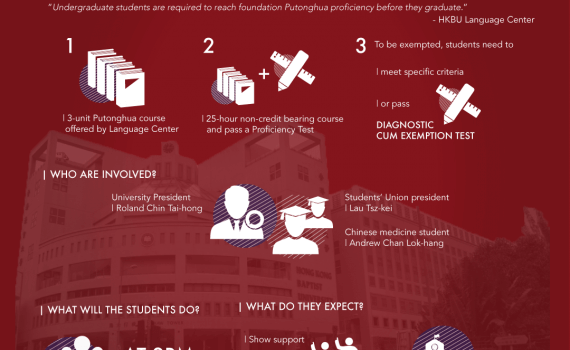By: Elly Wu、Kobie Li、Michelle Ng、Wing Li、Yoyo Chow、Zinnia LeeEdited by: Holly Chik

Defence suspected induction and insufficient evidence in cement-coffin murder
- 2018-03-29
- Society
- The Young Reporter
- By: Katherine LiEdited by: Michelle Ng
- 2018-03-29
At the body-in-cement case trial at The Court of First Instance yesterday, defence barrister Steve Tsui attempted to prove that the defendants were induced by the police as the court awaits possible new evidence. "Did you ever say (to the defendant) 'I heard you are a fighter, do you want to fight me now'?" Mr. Tsui asked a police officer who investigated this case and is called upon as witness, "and when the defendant asked to see a lawyer, did you ever hear your fellow investigator say 'don't play games with me, you are in a police station, no lawyer can help you now'?" The officer denied that the above conversation took place, and said that he never heard his fellow investigator make such statement as far as he knows. Mr. Tsui went on to ask him if he ever punched the forearm of the defendant and heard his fellow investigator suggest that the defendant should "perform well" in a videotaped interview to alleviate his sentence, but Mr. Lee still denied the claims. The barrister also questioned chief inspector Wesly Tse Tan-sang on the same topic which Mr. Tse said, "I wanted to find out the identity of those involved as soon as possible. It is the duty of the police." Tse was also interrogated on the process of how he "accompanied" the suspects back to Hong Kong from Taiwan and the procedures of their arrests, which he replied everything strictly abode to the rules and regulations of the police department and suspects were treated fairly. However, Mr.Tse confirmed that there is no eyewitness to this case, and only circumstantial evidence was present at the initial stage of their arrest. So far, the three suspects had admitted to "part-taking" the murder of Cheung Man-Li, but none confessed to the deed. The barrister …

A rundown of the recent events regarding the Putonghua incident at HKBU
- 2018-01-25
- Society
- The Young Reporter
- By: Yoyo Chow、Michelle Ng、Holly ChikEdited by: Michael Shum、Angie Chan、Ezra Cheung
- 2018-01-25
Two students at Hong Kong Baptist University were suspended on Wednesday after "occupying" the Language Centre. The incident happened a week after the release of the results of the Putonghua exemption test, in which 70% of the students who took the test failed. About 30 students headed to the Language Centre and occupied the centre for eight hours. Students' Union president Lau Tsz-kei later admitted that he spoke a Cantonese swear word during the exchange with an official from the Language Centre. The University described in a mass email four days after the event that the language used by the student was "abusive" and that their behaviour was "hostile". According to the mass email to all students, staff and alumni, two students were suspended from school "based on evidence currently available" because they "have been found to have conducted themselves in a way that made our colleagues feel threatened and insulted." They have been suspended from attending classes and exams but allowed to set foot on the University's premises. The University also said "their actions had also affected the normal operation of the University and seriously violated the Student Standards of Conduct." What is the Putonghua graduation requirement? According to the Language Centre of Hong Kong Baptist University, it is stated that all "undergraduate students are required to reach foundation Putonghua proficiency before they graduate". They can either pass a 3-unit Putonghua course offered by the Language Centre or take a 25-hour non-credit bearing course and pass a Proficiency Test conducted by the Language Centre. To be exempted from the requirement, students have to meet one of the following criteria: Non-Chinese speaking students Attended the Chinese Language examination in the Mainland or Taiwan Have attained Grade C or above in the HKCEE Putonghua subject Have passed the Test of …





